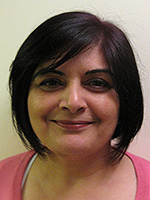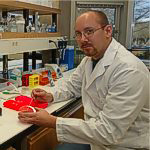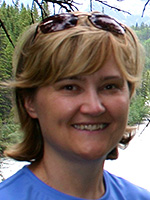National Consultative Workshop sponsored by the Institute of Nutrition, Metabolism and Diabetes and the CH.I.L.D. Foundation
June 27, 2011Sheraton Gateway Hotel
Pearson International Airport, Toronto Ontario
[ PDF (829 KB) ]
Table of Contents
- Acknowledgements
- Executive Summary
- Purpose
- Rationale/Pediatric IBD: A Brief Introduction
- The Workshop Partners
- Welcome and Opening Remarks from the Co-Leads
- Introductions
- CIHR Strategy for Patient Orientated Research (SPOR)
- Setting the Scene – Background and Context: Key National and International Initiatives as Context for the Discussion
- Workshop Discussions
- Objective 1: Defining the Value Added and Scientific Goals of the Canadian Pediatric IBD Network
- Objective 2: Delineating the Required Infrastructure for a National Pediatric IBD Network and Data Platform
- Reflections on the Day
- Closing Remarks / Next Steps and Timelines
- Appendix I – Welcome Letter from the Co-Chairs
- Appendix II – List of Workshop Participants and Bios
- Appendix III – Workshop Agenda
Acknowledgements
The Institute of Nutrition, Metabolism and Diabetes (INMD) and the Children with Intestinal and Liver Disorders Foundation (CH.I.L.D) wish to acknowledge the individuals who contributed to the development of the workshop:
CH.I.L.D. Foundation
Aubrey Tingle - Member, CH.I.L.D. Foundation Scientific Research Advisory Council
Tim Murphy - Executive Director, CH.I.L.D. Foundation National IBD Network
Facilitator
Sally Brown - Independent consultant, Ottawa
Sponsor
Nick Zamora - Chief Clinical Advisor at TELUS Health Solutions
INMD Team Staff:
Phil Sherman - Scientific Director
Paul Bélanger - Assistant Director, Ottawa
Mary-Jo Makarchuk - Assistant Director, Toronto
Vera Ndaba - Event Planner/Business Officer, Toronto
Keeley Rose - Project Manager, Toronto
Ginette Vallée - Project Officer, Ottawa
Executive Summary
The purpose of the workshop was to receive input from the Canadian Pediatric Inflammatory Bowel Diseases (IBD) research community to inform an upcoming Request for Applications (RFA) by the CIHR Institute for Nutrition, Metabolism and Diabetes, supported by the Foundation for Children with Intestinal and Liver Disorders (CH.I.L.D.), for a Canadian pediatric IBD Network and data platform.
The meeting opened with an overview of relevant context for the initiative including CIHR’s Strategy for Patient Oriented Research (SPOR) as well as lessons learned from a number of relevant international and national initiatives.
The key strengths and advantages of a Canadian network were articulated including: Canada’s universal healthcare coverage; the relative smallness of the pediatric IBD community and the limited number of centres such that scientific findings can be more quickly translated into provision of care; the unique opportunity Canada offers to study diverse communities; the collaborative nature of Canadian researchers; Canada’s strong expertise in data management and ability to link data sets; and, the capacity of the Canadian pediatric IBD patient and family population to mobilize patients and their families in support of a network. The consensus conclusion was that Canada should collaborate with other international networks, but not join them.
While no overall consensus was reached on the scientific goals for the Network, there was convergence on several themes including: the microbiome and the need to better understand changes in gut flora over time; environment and gene interactions; the systematic study of biomarkers, including environmental and nutrition biomarkers as predictors of outcome and biomarkers of effective treatment; and, tools to identify quality of care and success of patient treatments.
The two key infrastructure needs identified were a data platform and a biobank, including human infrastructure to collect data and samples. There was considerable convergence between the groups on the required elements and the underlying principles for these infrastructure elements as well as some of the key challenges to be overcome in moving forward, including ensuring strong relationships between the centralized infrastructure and the local institutions.
Several existing governance models were discussed in terms of their relevancy/adaption to the Network. The following governance principles were proposed as a starting point for creating an appropriate governance structure: scientific excellence; productivity; efficiency; program effectiveness; inclusivity; sustainability; transparency; adaptability; and accountability. Early identification of strong clinical research leadership was seen as imperative.
The closing plenary session reinforced several key themes, including the importance of this initiative for the Foundation, INMD and patients and their families as well as the sense of urgency and readiness across the community for moving forward at this time. The need to seek partners early in the process so as to ensure buy-in and potentially secure additional funding was emphasized along with the need to align early with other relevant groups and research initiatives.
The relative merits of having one coordinated application from the community, as opposed to multiple groups applying to the RFA, were discussed. It was reinforced that whether there was one collective response to the RFA or several, the basis for funding would be the excellence of the application as judged through peer review. It was confirmed by Dr Phil Sherman that, thanks to the CH.I.L.D Foundation, there is available support for 5 years of funding for the initiative, with the potential for a 5-year renewal. The meeting ended with INMD’s commitment to launch an RFA in the near future reflecting the valuable advice that both partners had received during the day’s deliberations.
Purpose
The purpose of the workshop was to receive input from the Canadian Pediatric Inflammatory Bowel Diseases (IBD) research community to inform a Request for Applications (RFA) by the CIHR Institute for Nutrition, Metabolism and Diabetes, in partnership with the Foundation for Children with Intestinal and Liver Disorders (CH.I.L.D.), for a Canadian Pediatric IBD network and data platform.
Specifically, leaders from across the country were invited to come together with the objective to help:
- Define the scientific goals for a Canadian Pediatric IBD Network.
- Delineate the required infrastructure and an appropriate governance structure needed to achieve a Canadian Pediatric IBD network and data platform.
- Identify relevant stakeholders, potential partners, and collaborators as well as other elements needed to ensure the successful implementation of such a network.
Rationale/Pediatric IBD: A Brief Introduction
Crohn’s Disease and Ulcerative Colitis are chronic, debilitating conditions that affect the gastrointestinal tract. While they are distinctly different illnesses they share many clinical, epidemiological, and immunological characteristics and thus are commonly grouped together as idiopathic chronic inflammatory bowel diseases (IBD).
Approximately one-quarter of all patients with these disorders are children. Recent data indicate an increase in the incidence of pediatric IBD, including a rise in incidence among children in certain ethnic communities.
Pediatric IBD has many characteristics that distinguish it from adult- onset IBD, yet management of pediatric IBD has largely been based on studies in adults. Important clinical questions remain unanswered and the factors that trigger these diseases remain, to a large extent, unclear.
The burden of these disorders on patients and their families is high. For children with IBD, especially Crohn’s Disease, linear growth and skeletal development are often impaired. Moreover, children and adolescents with IBD have relatively high rates of depression and anxiety, in part because of the waxing and waning course of the chronic illness. Pediatric-onset disease may alter the capacity of the child to become a successful and productive adult.
The Workshop Partners
The CH.I.L.D. Foundation
The Foundation for Children with Intestinal and Liver Disorders (CH.I.L.D.) was established in 1995 to fund research for children with Crohn disease, ulcerative colitis, and liver disorders. Located in Vancouver, British Columbia, the Foundation is committed to finding a cure for these disorders. Since its inception it has raised over $27M for research, including a $10M grant from the B.C. Government.
The Institute of Nutrition, Metabolism and Diabetes (INMD)
INMD is one of 13 Institutes of the Canadian Institutes of Health Research (CIHR). Established in 2001, its mandate is to support research to enhance health in relation to diet, digestion, excretion, and metabolism and to address the causes, prevention, screening, diagnosis, treatment, support systems, and palliation for a wide range of conditions and problems associated with hormone, digestive system, kidney, and liver function.
Welcome and Opening Remarks from the Co-Leads
Dr. Philip Sherman, the Scientific Director of INMD, and Mrs. Mary Parsons, the President and CEO of the CH.I.L.D Foundation welcomed the 21 participants and INMD staff to the one-day meeting and thanked them for taking the time to provide their expertise and insights into this important undertaking.
Mrs. Parsons indicated how pleased the Foundation was to be partnering with INMD and thanked them for agreeing to lead the Request for Applications (RFA) process and oversee the peer review. She noted the contributions being made in the field by the Crohn’s and Colitis Foundation of America (CCFA) who shared knowledge on their network.
Mary also welcomed the Crohn’s and Colitis Foundation of Canada (CCFC) representative as well as the representative from TELUS, acknowledging the latter’s financial support for part of the meeting.
Mrs. Parsons shared some of the Foundation’s learnings over the past 16 years, noting the absence of patient involvement in research, the frustrating wait of patients and their families for a cure that never comes, and the real risk of donor fatigue when progress does not seem to advance. She hoped that this workshop would be first and foremost about “change” and hailed the fact that the IBD world “has embraced collaboration”, something that holds promise for achieving the Foundation’s mission. She ended with a call to participants and organizers to “make history today”.
Dr. Sherman then spoke to the importance of this initiative for the Institute and how pleased they were to be involved. He noted the critically important role the Foundation had played in catalyzing where the community was today and his confidence that, given the leadership and expertise in the room, success in moving the project forward was assured. He thanked the CH.I.L.D. Foundation for their generous contribution of $5M over 5 years to support the RFA. Finally, he reminded all participants that the level of advice needed by the Institute during the day’s deliberations was strategic, not operational, as the objective was to inform the RFA development and put the appropriate parameters in place, but not to draft the RFA.
Introductions
The facilitator, Ms. Sally Brown, outlined the process for the day, including a mix of plenary and small group discussions. She thanked Drs. David Mack, Robyn Tamblyn, and Anne Griffiths for agreeing to chair one of three breakouts groups and encouraged all members to actively participate so as to ensure the comprehensiveness and richness of the advice offered. Participants were then asked to share their own personal expectations for the day.
CIHR Strategy for Patient Orientated Research (SPOR)
Dr. Sherman presented the key elements of CIHR’s Strategy for Patient Oriented Research (SPOR), noting that this new initiative provides an important, relevant, and supportive context for the Pediatric IBD Network initiative. The Strategy has been over two years in development, under the leadership of a Steering Committee drawn from across the country and internationally.
It is expected to be announced in the coming weeks by the Federal Minister of Health. He emphasized that the Strategy, while initiated by CIHR, was much broader than CIHR and that engagement and collective leadership for the Strategy from all levels of government is essential to meeting the Strategy’s goals and in effecting change.
The mission of SPOR is to improve health outcomes through clinical research by addressing gaps in the research-to-practice continuum. In terms of scope, it includes the continuum from “first-in-patient” studies through to how new and old drugs, devices, and procedures are integrated into health systems. The term “patient-oriented research” also implies a much more active and engaged role for patients and their families in research.
Dr. Sherman then outlined the five broad areas in which the specific initiatives being proposed to meet the goals of the Strategy are organized:
- Developing the Talent Pool: to build capacity in patient-oriented research and develop the relevant expertise through re-designing career training and salary awards for all types of clinical investigators and to train more methodologists, health care professionals, epidemiologists, biostatisticians, health economics and other health-related social scientists to support patient-oriented research activities.
- Enhancing the Conduct, Funding and Effectiveness of Multi-Centre Clinical Trials: to overcome a number of identified barriers such as inadequate funding for trials, the lack of a common contracts template to facilitate research between researchers and industry and the lack of harmonized ethics processes that is prohibiting the timely ethics review of multi-centre trials.
- Supporting Thematic Patient-Oriented Research Networks: to build on Canada’s experience in multi-disciplinary or trans-disciplinary solutions-focused networks and respond to current challenges with respect to sustainability, linkage and methodological support.
- Building and Resourcing SUPPORT units: to create specialized research service centres referred to as Support for People and Patient-Oriented Research and Trials (SUPPORT) units, multidisciplinary centres of methodologists, health economists and clinical trialists as well as research support staff to assist investigators design relevant research studies, conduct biostatistical analyses, manage data and biobanks, learn project management skills and meet regulatory standards.
- Improving the Development, Dissemination and Uptake of Clinical Practice Guidelines and Best Practices: to increase capacity for knowledge synthesis, provide relevant training to guideline developers, improve understanding of the barriers to implementation, and encourage guideline implementation and evaluation.
Dr. Sherman informed participants that the first step proposed for moving forward with the Strategy is the establishment of a national Steering Committee comprised of representatives from all major stakeholders in the non-profit, public, and private sectors. The Committee will be tasked with implementing the Strategy and encouraging collective engagement and ownership and will be guided in its work by the Strategy’s seven principles: collaboration; responsiveness; excellence; inclusivity; innovation; accountability, and transparency. A key factor is the important role of the patient to ensure that research priorities are relevant and that the transfer of knowledge is effective.
Dr. Aubrey Tingle shared with participants aspects of the Maternal Infant and Child and Youth Research Network (MICYRN) as an example of a new network in the field of pediatrics. Dr. Tingle explained that MICYRN, founded in 2006, arose from a coalition of child and maternal health researchers and institutions. MICYRN’s vision is that the synergistic strength gained from a formal collaborative network of researchers who are enabled by integrated infrastructure will spur tremendous advances that are unattainable by individual groups. It has been recently incorporated and it is anticipated that strong linkages with SPOR will be developed.
Setting the Scene – Background and Context: Key National and International Initiatives as Context for the Discussion
Mr. Tim Murphy, Executive Director, CH.I.L.D. Foundation National IBD Network presented a number of relevant international and national initiatives from which several lessons were drawn with respect to the current initiative.
CH.I.L.D. National Survey and International Workshop
A national survey of pediatric gastroenterologists, conducted in the fall of 2009 by CH.I.L.D, showed strong support for the concept of a national pediatric IBD network and data platform.
The survey highlighted some of the critical success factors for the initiative, including the provision of sustainable, long-term financial support and the requirement of having an identified scientific champion and leader to guide the development process.
In addition, the survey highlighted several key challenges in the present research system including: the lack of coordination and duplication of technology; the lack of critical mass of patients and scientists in pediatric IBD in Canada; limited integration; privacy concerns; and, misaligned system-wide incentives.
The Foundation subsequently held an International Advisory Workshop in June 2010 in Vancouver to learn from similar initiatives in other parts of Canada, the United States, and Britain so as to inform the design and implementation of a National Network in Canada. Seven themes emerged from the Workshop:
- Leadership: Governance structures are critical to the success of the initiative.
- Planning: Before establishing a data platform researchers need to clearly define what research questions they want to answer.
- Ethical and Legal Issues: Agreements with respect to intellectual property, data sharing, material transfer, liability, indemnification, ethics, privacy and patient consent need to be developed and operating procedures, protocols and processes harmonized.
- Access and Functionality: Principles need to be articulated that define how individuals, groups and organizations will partner to develop and operate a national data platform (including ownership of data, access to data and biosamples) and how data will be used, protected, and shared.
- Sustainability: A strategic approach is required to ensure the long-term sustainability of a national data platform.
- Partnership and Collaboration: There needs to be an openness to strategically partner with other like-minded individuals and organizations (nationally and internationally) when there is a clear benefit for so doing.
- Communication: The need for consistent key messages is imperative as part of a broader communication and marketing strategy.
UK’s Pediatric IBD Registry
A recent attempt in the UK with respect to creating a Pediatric IBD Registry was ultimately unsuccessful. Dr. Nick Croft, from St. Bartholomew’s Hospital in London, had offered several reasons for its failure: a lack of clear direction from the leadership; limited or no resources available for submitting centres to enter patients into the registry; and, agreement to ‘consent’ all patients seen in all the centres for everything became too resource intensive and, when coupled with limited local resources, resulted in the centres ceasing to enter patients.
US Pediatric IBD Network
A recent experience in the US in the 1990‘s with respect to a Pediatric IBD Network and database was also ultimately unsuccessful. The Network leadership articulated several reasons for its lack of success including: its non-inclusivity (i.e. the network included only a limited number of centres); funding was not linked to patient recruitment; there was inadequate oversight; establishing the database was the primary goal rather than that of asking scientifically and clinically important questions; its creation was driven by political rather than scientific reasons; and, the leadership proved divisive rather than responsive to constructive advice.
CCFA PRO-KIIDS Research Data-Base Initiative
The Pediatric Resource Organization for Kids with Inflammatory Intestinal Disease (PRO-KIIDS) was established three years ago by the Crohn's & Colitis Foundation of America (CCFA) to set out research priorities and to further pediatric IBD treatment and research.
CCFA's "Pediatric Network" is the first major pediatric IBD research initiative to fall under PRO-KIIDS, and involves various institutions working together on mutually agreed upon projects. A combination of CCFA representatives, Network investigators, and an external advisory board help steer the Network and monitor network activities moving forward. The Risk Stratification Study is the first project currently underway and is fully-funded by the CCFA.
Mr. Murphy briefly discussed some tactical considerations discussed at the International Workshop with respect to the RFA i.e. whether the RFA should follow the more traditional route or be conducted with a more managed process. The consensus of the workshop participants was that a more managed process was needed and that, ultimately, the result of the RFA would essentially be a contract with researchers with clear goals and accountability mechanisms built in.
In closing, Mr. Murphy spoke to the importance of leverage and innovation through networking and collaboration and the need for the meaningful engagement of patients and families in the research and care process. He reiterated the CH.I.L.D. Foundation’s sense of urgency and belief that the timing was right to move forward.
Workshop Discussions
Participants were divided into three groups with a geographic, institutional, research pillar and researcher/lay mix so as to help ensure a breadth of opinions and perspectives in each group. Groups reported out at the end of each session to share their key points in each topic area followed by group discussion to determine areas of convergence and shared insights. Notes were taken in each group by a staff member from INMD and the CHILD Foundation so as to ensure that all comments were captured.
Objective 1: Defining the Value Added and Scientific Goals of the Canadian Pediatric IBD Network
What are the Key Scientific Goals?
The groups initially discussed the priority scientific goals for the Network. While no overall consensus was reached on goals during the reporting out, there was convergence on several themes including:
- The microbiome and the need to better understand changes in gut flora over time;
- Environment and gene interactions;
- The systematic study of biomarkers, including environmental and nutrition biomarkers as predictors of outcome and biomarkers of effective treatment; and
- Tools to identify quality of care and success of patient treatments.
One of the workshop groups proposed focusing on sub-groups of patients within the overall populations of pediatric IBD patients in order to:
- Refine patient sub-phenotyping to better diagnose and treat IBD;
- Find the cause/triggers of the sub-types with a focus on the microbiomes and how they change over time;
- Track the epidemiology of the sub-groups in Canada;
- Develop protocol-driven therapeutic regimes for each sub-group; and
- Focus on gene-environment interactions for sub-groups of patients to optimize outcomes.
Other Areas of Recommended Foci for Scientific Goals were:
- Develop clinical and research-relevant measures to identify risk;
- Assess the psychosocial impact of the disease on the child and family, including indicators of psychosocial risk, and take the opportunity to respond to patient concerns regarding quality of life issues;
- Track the epidemiology, the location and the ethnicity of IBD, including evaluating particular populations and ethnicities (e.g., Jewish, South Asian);
- Describe patient cytokine profile and how it can be used to target therapies;
- Understand reasons for the observed increasing incidence of IBD in the pediatric population in Canada; and
- Explore potential new uses for old drugs, and determine which patient sub-groups these drugs work best in; and
- Define the role of epigenetics in pediatric IBD.
Several participants favored a focus on early-onset cases of IBD and disease progression over time as a main driving theme.
The question was raised as to whether there is an opportunity for the Network, building on the patient-focused theme of SPOR, to find answers to questions that patients are interested in. It was noted that CCFC hears frequently from patients about possible alternative medicines, complementary therapies, and the role of nutrition in enhancing their quality of life. Whatever focus or foci is determined, there was agreement that it will be important to clearly articulate the benefits to patients and their families.
Another participant noted that, in addition to wanting a cure, patients want to know that their children will be protected and are concerned about the effect of therapies on future reproductive health.
The session ended with thoughts on the relative importance for the Network of finding a cure versus enhancing care. The general consensus was that the focus needs to remain on finding the cure while enhancing care along the way and that cure and patient outcomes are complementary.
What is the Added Value of a Canadian Pediatric IBD Network?
The groups discussed the value-added Canada brings to the creation of such a network and the merits of a Canadian-only network at this time in lieu of partnering with existing international networks. There was considerable agreement among the participants on the benefits and advantages of a Canadian network:
- Canada’s universal health care coverage provides close to a population-based sample to work with. It was also noted that while having a small patient population relative to other countries, this comprehensive coverage, coupled with the high incidence of the disease, provides enough variability in patients in terms of ethnicity, diet, care, and outcomes to be able to ask and answer important research questions.
- The relative smallness of the pediatric IBD health care and research community and the limited number of centres means that scientific findings can be translated more quickly into care. There are 16 pediatric centres in Canada, all of which are research oriented, which collectively cover the vast majority (approximately 85%) of children with IBD. The absence of community and smaller centres providing pediatric IBD care means little care of affected children is currently provided outside of a university hospital setting. There is good communication between the pediatric centres and within the academic environment. Three Canadian sites are part of the CCFA’s Pro-KIIDS Network, helping ensure that Canadian researchers will not be isolated from their U.S. colleagues but, rather, be in a position to share data, experiences, and best practices. (It was noted, on the other hand, that the smallness of the pediatric IBD community in Canada might present challenges on delineating different sub-types of disease (genetic, immunological, microbiome) as higher numbers of patients are likely to be needed. There was also agreement that in focusing on research centres, it will be important not to exclude small centres because they provide needed diversity which is a strength in the Canadian system.
- Canadian practice patterns are different than in the US, including care givers and standards of care as well as availability of laboratory tests.
- Canada offers a unique opportunity to study diverse communities with wide ethnic diversity across existing centres. Because the pediatric centres cover even remote areas, there is the possibility of getting data from individuals living there (e.g. Nunavut, the Yukon and the Northwest Territories). Such data are unique and Canadian.
- Canadian researchers are regarded as uniquely collaborative.
- Canada has strong expertise in data management with an advantage in terms of the ability to link data sets, including clinical with administrative data, biological samples, clinical data, administrative data, and government databases on health care costs. While there are a number of privacy restrictions and reluctance to share administrative data across provincial jurisdictions, there is a clear trend line in terms of databases linking more often to address a research agenda.
- Canada has a very committed group within the IBD pediatric patient and family population, and thus the capacity to mobilize patients and their families in support of a Network is high.
The consensus was that Canada should collaborate with other international networks in the future.
Objective 2: Delineating the Required Infrastructure for a National Pediatric IBD Network and Data Platform
Two key infrastructure needs were the focus of the discussion: a data platform and a biobank, including human infrastructure to collect data and samples. There was considerable convergence between the groups on what was needed.
Data Platform
There was general consensus on the required elements and underlying principles of a comprehensive data platform. These include:
- The database needs to meet needs of researchers, clinicians, and patients and to have clear clinical applicability;
- The infrastructure chosen must be easy for physicians to use;
- To avoid data entry errors, trained people are needed to do the data entry, ideally compensated to do the job well;
- Data should be entered once, but be available for multiple uses and parallel questions;
- The data platform, while created to serve the Network, must be useful to the local healthcare centres and sensitive to local requirements while being flexible enough to adapt to future use; incentives for participating sites should be thought through - such as ability to use the system to generate prescriptions, summarize individual clinician-level data, and ensuring access to the data at the institution level.
- The ability to have graded consents from patients with respect to the use of the data is important to help alleviate patient concerns regarding data use (i.e. patients need to have the ability to opt in or opt out of certain uses of data);
- A data coordinating centre with a strong lead is essential but with the proviso about the need to balance local needs with those of the central coordinating centre; the coordinating centre will also need access to virtual expertise (e.g. biostatisticians, statisticians), as contemplated in the SPOR model;
- Quality certification and on-going auditing for sample quality must be built in from the inception of the data platform as are mechanisms to ensure data comparability between centres; these services should be centrally located; and ability needed to link with other databases while respecting ethical and privacy issues.
There was a strong consensus among all the workshop groups that following the development of the initial minimum dataset, data collection needs to be hypothesis or question-driven with the flexibility to change data collection as new hypotheses arise. The data needs will vary considerably depending on the scientific goal(s) driving the Network.
Participants also agreed that, ideally, a mechanism to track patients after they leave the system - i.e. patients 18 years and older - should be built into the system.
The question of reimbursement both for data collectors and study coordinators and for executive leadership for the Network was raised a number of times, with the consensus that this would be ideal, but likely not practical in Canada. This will be a challenge for the Network raising the prospect of a “co-leadership” model for the executive leadership of the network.
Biobank
Many of the same questions and challenges noted above with respect to the data base were seen as relevant to the biobank, including the need for quality control, maintenance certification and ongoing auditing, and the principle that collection of samples needs to be based on hypotheses. It was also agreed that clear rules for ownership, authorship, and collaboration need to be set from the beginning of the Network.
A bio-repository is needed with local storage and batching capacity at local centres after acceptance on data handling standards. An established system of transport to the biobank is also needed.
It was agreed that buy-in from clinicians was essential for the success of the biobank to ensure the collection of enough patient samples to make it feasible economically (i.e. enough material to keep the research coordinator busy) and for research purposes.
One group identified Edmonton as having a biobank related to IBD in adults and it was confirmed that the Hospital for Sick Children has started a pediatric IBD biobank. This raised the question as to whether the Network could buy services from an existing biobank, rather than establishing new capacity.
Participants expressed concern that, as biobanking is an investment in long-term research outcomes and will not produce short term, this could be a problem for funders such as the CH.I.LD. Foundation.
One participant cautioned that while the pediatric patient participation is generally very good in supporting data collection and the collection of samples, the recruitment of first generation Canadians may be problematic.
Mr. Zamora (TELUS) noted that there are numerous novel technologies now available that might be of considerable relevance in terms of infrastructure support generally for this project.
The session ended with questions around when sustainability of the infrastructure will be clarified as this will be of critical importance to local institutions, i.e. the minimum guarantee that this infrastructure will stay in place. The response from Dr. Sherman was the period of research funding support would be 5 years with the option for renewal for another 5 years, contingent upon performance.
Governance, Accountability and Leadership
The need for strong leadership and accountability was articulated throughout the day with early identification of a strong clinical research leader seen as imperative.
In terms of an appropriate governance structure for the Network, several governance models were discussed in terms of their components and relevancy/adaption to the Network. These models include:
- Networks under the federal government’s Networks of Centres of Excellence (NCE) Program;
- CHIR’s new Drug Safety and Effectiveness Network (DSEN), developed in collaboration with Health Canada to increase the available evidence on drug safety and effectiveness for regulators, policy-makers, health care providers and patients and to increase capacity within Canada to undertake high-quality post-market research; and
- The Genetic, Environmental and Microbial (GEM) Project, a Canada-wide research study, funded by the CCFC, that will attempt to determine possible causes for Crohn's Disease by following 5,000 healthy individuals between the ages of 6 and 35, who are at a higher risk for developing the disease over time.
With respect to the DSEN, Dr. Sherman noted that a Steering Committee provides strategic direction and sets priorities for research through the development of a common research agenda. CIHR has appointed as members of the Steering Committee nominees who are able to significantly contribute to the achievement of the objectives of DSEN in the overall interests of Canadians. Consideration was given to appointing members who reflect a range of relevant backgrounds and disciplines.
NCEs are, for the most part, governed by a volunteer Board consisting of a range of stakeholders including researchers, patients, private sector representatives and representatives from the funder (Industry Canada) and the host institution. The Board’s primary role is to ensure that the Network meets the funder’s requirements in terms of outcomes e.g. commercialization or knowledge translation of the research as well as developing a sustainability plan for the Network once the government funds are no longer available. An NCE is led by a Scientific Director who is not the Board Chair.
The key committee of the Board is the Scientific Review Committee, often chaired by the SD, responsible for the peer review process and the excellence and relevance of the science to the Network’s goals.
A governance model put forward by one group included an Executive Committee, a Steering Committee, and an Oversight Committee. The Executive Committee would be composed of the principal investigators with the Steering Committee members being scientific leaders recruited on the basis of their expertise and track record in the focus area(s) of the Pediatric IBD with the potential for non-paediatricians to be invited to participate to fill identified gaps. A small Oversight Committee would meet twice a year to ensure accountability, potentially composed of experts at arm’s length, funders and other key stakeholders. The group also felt that the participating centres needed to have a voice in the governance of the Network and that a staged approach to building the Network over time would be beneficial beginning with a Steering Committee that would evolve into the Board.
Discussion then focused on a set of governance principles as a starting point to defining a governance structure. This approach and the principles which had been proposed by one group met with considerable support from all participants. The key principles proposed are:
- Scientific excellence
- Productivity
- Performance efficiency
- Program effectiveness
- Inclusivity
- Sustainability
- Transparency
- Adaptability
- Accountability
Discussion focused on who would appoint the Board and to whom and for what would the IBD Network be accountable. In terms of to whom, it was agreed that the Network would be accountable to the funder(s) (e.g. CH.I.L.D); to patients, to themselves as researchers and to the pediatric IBD Community and to other stakeholders, once identified. To manage potential conflicts of interest with respect to research agendas, it was suggested that the governance structure should include members that reflect the stakeholder views, but that are not stakeholders themselves.
The Network was seen as accountable for the prudent use of funds, the quality of the research, the relevance and timeliness of the work - in essence, for the Network deliverables. It was noted that a key lesson learned from the GEM project is that the deliverables need to be clearly specified and agreed to up front. The concept of an external evaluation process, involving international as well as national expertise was recommended as a means to ensure that the proper research direction was being followed. In terms of the qualities of the scientific leader(s) needed for the Network, there was agreement that in addition to being a highly respected researcher, strong project management and interpersonal skills are critically important.
Reflections on the Day
Two leaders from the research community were asked to reflect on the day’s discussion and highlight the critical issues to be considered moving forward. Dr. William Paterson, Past-President of the Canadian Association of Gastroenterology and a member of the INMD Institute Advisory Board and Dr. John Barnard, Past-President of the North American Society for Pediatric Gastroenterology, Hepatology and Nutrition (NASPGHAN) and President of the Research Institute at Nationwide Children’s Hospital in Columbus, Ohio shared their thoughts with participants.
Dr. Paterson expressed optimism that the initiative will move forward to benefit children with IBD and the GI research community. In his view there are advantages to moving forward with a pediatric initiative as one of the first truly national networks given the manageable size of the community, more of a tendency, in his experience, for pediatric researchers to work together, and the strong buy-in and support from the patient and family community.
He urged the group to engage the families of children with IBD in the planning process so they become excited about the prospects and see its usefulness and understand its potential.
Dr. Paterson cautioned that if the goal is a cure, the projects at the forefront of the Network should be aimed at a cure. He also spoke to the importance of funding for operating grants once the infrastructure is set up, but stressed it will be equally important to ensure that the knowledge is translated so that funding agencies will continue to fund the Network and patient support remains strong.
He advised the planners to seek partners early to improve buy-in and potentially secure some additional funding and to align early with other relevant groups and initiatives.
For Dr. Paterson, the key question is whether multiple groups will apply to the RFA or whether a consensus can be reached from across the community to support one application. In his view, there should be participation from across the country on all the projects rather than separate groups working in separate areas. He ended by personally stressing that a strong academic project leader will be critical.
Dr. Barnard emphasized that this project was a “unique opportunity” for Canada to move forward. He expressed his view, however, that it was vitally important that this be one coordinated application across Canada with one Principal Investigator, as divisiveness would likely result from a competition for the RFA.
In terms of governance, Dr. Barnard supported the approach of beginning with governance principles and expressed his view that the principles articulated today were a very good place to start. He supported the caution, however, with respect to avoiding conflicts of interest in the researchers to participate in the governance structure.
He also indicated support for a programmatic approach with theme leaders, which allows for strengths across the country to be represented and shared leadership where people can see a place for themselves. The project needs to be inclusive across the nation. He emphasized that “patients want people to work together”.
Dr. Barnard shared that this meeting was reminiscent to him of a 2003 meeting of NASPAGHAN. At that time, networks were an alien concept, something that is no longer true today. He stressed that “big science” may take a while to develop, but minimum data and registries can be developed quickly. He cautioned that scientists will have to calibrate their expectations as available funds might support one large science project plus a database. Dr. Barnard also spoke to the synergies to be created with other entities and initiatives both nationally and internationally.
Dr. Barnard ended his comments by agreeing that Canadians have the upper hand because the community is small and collaborative. He expressed strong support that the proposed project was very “doable” with right people at the table, as long as everyone “checks their ego at the door”.
Closing Remarks / Next Steps and Timelines
Dr. Sherman closed the day’s discussions by thanking all the participants and getting a sense from the room that by and large their expectations for the day were met. It was noted, however, that the objective of identifying potential partners for the project had largely not been achieved and would need to be the focus of additional discussions. For his part, he expressed thanks for the advice that had been given throughout the day which will prove helpful in moving the project forward.
He reminded participants that no matter whether, in the end, there was one collective response to the RFP or several, that the basis for funding would be the excellence of the application as judged through peer review. He indicated, however, that INMD would be able to support a meeting for researchers to get together to develop a grant application.
Dr. Sherman again confirmed that, thanks to the CH.I.L.D Foundation, there is available support for 5 years of funding for the Pediatric IBD network with the potential for another 5-year renewal and that, it was hoped, additional partners might be found to supplement this resource level.
Dr. Tingle, in response to a question, noted that MICYRN is supportive of networking in child and maternal health research and sees the Pediatric IBD network as a potential prototype of a national disease-oriented network which can be showcased as an example for others to follow. MICYRN would collaborate with and support the Pediatric IBD network and look for ways to standardize procedures across all networks.
In terms of next steps, Dr. Sherman indicated that a meeting report will be developed and circulated to all participants for their critical review within the coming month. He then assured the community that an RFA will be sent out in the near future, “not tomorrow, but not next year either” and that he understood and supported the sense of urgency so well-articulated by Mary Parsons. He again thanked Ms. Parsons and the CH.I.L.D Foundation and expressed his commitment to moving forward together.
Appendix I – Welcome Letter from the Co-Chairs
Dear Colleagues:
Welcome to Toronto!
On behalf of the Canadian Institutes of Health Research (CIHR) Institute of Nutrition, Metabolism, and Diabetes (INMD), the Children with Intestinal and Liver Disorders (CHILD) Foundation, welcome to this Workshop on Developing a Research Agenda to Inform a Call for Applications for a Canadian Pediatric IBD Network and data platform.
This Workshop brings together researchers, representatives from voluntary health organizations, and provincial governments.
Recommendations from this Workshop will be used to inform a future funding opportunity launched by INMD and supported by CH.I.L.D. to support a Canadian Pediatric IBD Network and data platform.
We thank all of the individuals who contributed their energy and ideas to the development of the workshop agenda, including Tim Murphy, Sally Brown, and Paul Belanger.
This Workshop will present opportunities for participants to make new contacts and build collaborations, network with colleagues, and learn about new research opportunities. We encourage you to take advantage of these opportunities by actively participating in all aspects of the Workshop.
Thank you for participating in the Workshop. We look forward to vigorous discussion that will contribute to the development of a Canadian Pediatric IBD Network and Data Platform.
Sincerely yours,
Philip M. Sherman, MD, FRCPC
SD, INMD
Mary Parsons
President & Chief Executive Officer,
CHILD Foundation
Appendix II – List of Workshop Participants and Bios

Devendra Amre
I am currently an Associate Professor (Epidemiology) at the Department of Pediatrics, University of Montreal, Montreal, and Epidemiologist at the Research Center of Sainte-Justine Hospital, Montreal. My background includes formal training in Medicine (MBBS), Public Health (DPH), Occupational Health (MSc), and Epidemiology & Biostatistics (PhD). My research interests cover the domain of Inflammatory Bowel Diseases (IBD), particularly those affecting children and young adults. Main areas of interest are ascertaining the genetic & environmental determinants of susceptibility for IBD and the studying the clinical, environmental and genetic determinants of the clinical course of IBD. Specific areas of research include genetic & clinical determinants of growth impairment & steroid response, investigation of novel genetic determinants beyond the coverage of whole genome-wide association studies & interactions between dietary factors and their metabolic genes vis-à-vis risk for IBD.

John Barnard
John Barnard, MD, is President of The Research Institute at Nationwide Children’s Hospital and Vice-Chair for Research in the Department of Pediatrics at The Ohio State University. His NIH-funded research program focuses on regulation of intestinal epithelial growth by transforming growth factor beta, a key growth regulatory protein and tumor suppressor in the gastrointestinal tract. Dr. Barnard is past-president of the North American Society for Pediatric Gastroenterology, Hepatology and Nutrition (NASPGHAN) and is President Elect of the NASPGHAN Foundation. He is a practicing pediatric gastroenterologist, and has been named among the “Best Doctors in America” since 2003. He was recently recognized as Executive of the Year by TechColumbus, an organization committed to entrepreneurship, innovation and job growth in Columbus, Ohio.
As president of The Research Institute, Dr. Barnard is responsible for establishing priorities and overall scientific direction for The Research Institute. He was a key figure in Nationwide Children’s Hospital’s recent strategic commitment to prematurity research.
In 2010, The Research Institute received more than 100 million dollars annual in internal and external research funding. Currently more than 100 faculty scientists at The Research Institute occupy more than 320,000 square feet of dedicated research space. Research Building III, a 250,000 square foot addition to the research campus will open in 2012.

Eric Benchimol
Dr. Benchimol is a clinician scientist in the Division of Gastroenterology at CHEO and adjunct scientist at ICES in Ottawa. He completed his pediatric gastroenterology training at the Hospital for Sick Children and a doctoral degree in clinical epidemiology at the University of Toronto. During his training, he developed the Ontario Crohn’s and Colitis Cohort, the world’s largest ongoing surveillance cohort of pediatric IBD, using Ontario’s health administrative data housed at ICES. He conducts epidemiology, outcomes and health services research of IBD patients using these data. He also has interests in the methodological quality of research using such data and the linkage of clinical and administrative data to improve database value and completeness.

Sally Aileen Brown
Sally Brown is an independent consultant in Ottawa working with the non-profit and government sectors. Ms. Brown was CEO of the Heart and Stroke Foundation of Canada (HSFC) from 2001 to 2010, where she successfully led the Foundation through major governance and organizational change, grew the organization's national profile, and enhanced its mission impact. Before joining HSFC, Ms. Brown spent ten years as Vice-President of the Association of Universities and Colleges of Canada and two years as a special advisor in the Prime Minister’s Office. Before moving to Ottawa, Ms. Brown was a senior executive at The Toronto Hospital, serving as Director and, subsequently, as Assistant Vice-President, Diagnostic Services.
Ms. Brown has served on a number of non-profit Boards of Directors in the health sector and is currently on the Board of the InterAmerican Heart Foundation, the Canadian Agency for Drugs and Technologies in Health and the Institute Advisory Board of the Institute of Gender and Health of the Canadian Institutes of Health Research. Ms. Brown has a Master of Health Sciences (Health Administration) and a Bachelor of Arts from the University of Toronto, and a Diploma in Nursing from the Toronto General Hospital School of Nursing.

Jeff Critch
Pediatric Gastroenterologist, Associate Professor of Pediatrics, Memorial University, St. John’s, NL
I have been practicing pediatric gastroenterology in Newfoundland since 2002. I completed medical school and pediatric residency training through Memorial University. I completed a pediatric gastroenterology fellowship at the Hospital for Sick Children, University of Toronto. I have a M.Sc. in clinical epidemiology. My thesis was entitled “An epidemiological study of pediatric-onset Crohn’s disease: Relationship between nature of disease and outcome”. I have continued research interests in pediatric inflammatory bowel disease as well as other areas of pediatric gastroenterology, hepatology and nutrition.

Sylviane Forget
Assistant Professor of Pediatrics
Montreal Children’s Hospital
McGill University Health Center
Dr. Forget graduated from Medical School at Université de Montréal. She did her pediatric residency at l’Hôpital Ste-Justine where she pursued a specialization in pediatric gastroenterology. After spending one year there as an attending, she completed a Master`s degree in Clinical Epidemiology at McMaster University. She returned on staff in the Division of Pediatric Gastroenterology of the Montreal Children`s Hospital at McGill University in 1997, where she directed the McGill Pediatric Gastroenterology Training Program from 1998 to 2006. In addition to her clinical practice, she is actively involved in undergraduate and graduate teaching, and in clinical research. She sat on the Training Committee and the Education Committee, and is now sitting on the Ethics committee of the North American Society of Pediatric Gastroenterology, Hepatology and Nutrition, and is Chair of the Ethics Committee of the Canadian Association of Gastroenterology. She is involved with the Canadian Helicobacter Pylori Study Group and with the Quality in Endoscopy Consensus Group of the Canadian Association of Gastroenterology, for which she leads the Ethics working sub-group. Her main interest is clinical research with a focus on inflammatory bowel diseases.

Anne Griffiths
As a senior pediatric IBD specialist, Dr. Griffiths has directed a large pediatric IBD program integrating clinical care and research since 1990. She is the inaugural holder of the Northbridge Chair in IBD, and Head of the Division of GI/Hepatology/Nutrition since 2008. Under her leadership, the Hospital for Sick Children Toronto IBD program pioneered IBD genetic research beginning in 1996, when efforts to understand the basis of genetic susceptibility first began. Dr. Griffiths supervised the collection of DNA and phenotypic data from single-affected and multiplex families for the purpose of, firstly, linkage studies and subsequently genome-wide association studies in collaboration with the NIH/NIDDK North American IBD Genetics Consortium and, most recently, as a Steering committee member of the International Paediatric IBD Genetics Consortium. She is Deputy-Chair of the Executive Committee of the CCFC-funded Gene, environment, microbe (GEM) study, as well as site PI at SickKids Hospital, which has consistently been the top recruitment site nationally. She is site-principal investigator and similarly successful contributor of patients for the CCFA Pediatric Crohn’s Disease Risk Stratification study, an inception cohort study in new onset Crohn’s disease. She co-founded the North American Pediatric IBD Registry, and has been on the steering committees of all major industry-sponsored clinical trials of biologic therapies in pediatric Crohn’s disease and UC. She initiated and was the principal investigator on an international multi-center study conducted among children hospitalized with acute severe UC, a study which has helped in the development of guidelines of treatment of this cohort of patients. She has authored over 160 peer reviewed publications and over 40 book chapters, and has lectured widely internationally on pediatric IBD. As former Director of the large University of Toronto Pediatric Gastroenterology Training Program, and as Director of the IBD Program, Dr. Griffiths has mentored and trained many pediatric gastroenterologists, now clinician investigators engaged in IBD research across Canada and beyond.

Kevan Jacobson
Dr. Jacobson is the Head of the Division of Gastroenterology, Hepatology and Nutrition at British Columbia Children’s Hospital. He is an Associate Professor, and a C.H.I.L.D./C & W Foundation Senior Clinician Scientist in the Department of Pediatrics, in the Division of Gastroenterology, Hepatology and Nutrition, Child and Family Research Institute and UBC.

David Mack
David Mack attended medical school at the University of Toronto (M.D., 1983) followed by Pediatric Residency training at the University of Ottawa and University of Toronto (FRCPC) and Pediatric Gastroenterology Fellowship at the Hospital for Sick Children in Toronto. Following 10 years at the University of Nebraska College of Medicine, Dr. Mack was appointed as a professor in the Department of Pediatrics at the University of Ottawa and is currently Chief of the Division of Pediatric Gastroenterology, Hepatology & Nutrition at the Children’s Hospital of Eastern Ontario.
Meg McMahon
Meghan provides strategic support and expertise in the development and delivery of the Institute’s research, capacity building and knowledge translation initiatives. She is the CIHR-IHSPR lead for the Evidence-Informed Healthcare Renewal strategic initiative and will manage the Institute’s international partnerships strategy and priority-setting exercise. Meghan worked as a Senior Projects Officer with CIHR-IHSPR from 2007-2010 and was responsible for the Institute's knowledge translation and evaluation portfolios. Prior to joining CIHR-IHSPR, she worked with the UBC Centre for Health Services and Policy Research and the Organisation for Economic Cooperation and Development. Meghan completed her MSc in Health Services Research at the University of Toronto and is currently pursuing her PhD.

Aleixo Muise
Dr. Aleixo Muise completed his BSc at Sr. Francis Xavier University and his PhD in Biochemistry at Dalhousie University. Dr. Muise obtained his MD at the University of Toronto and then completed is Pediatric Residency and subspecialty training in the Division of Gastroenterology, Hepatology and Nutrition at SickKids. Dr. Muise was recently appointed as Assistant Professor in the Division of Gastroenterology, Hepatology and Nutrition, Department of Pediatrics, and as a Scientist Investigator in the Program in Cell Biology, Research Institute, Hospital for Sick Children, University of Toronto.
Research Interests: Inflammatory Bowel Disease
Research Activities: Muise's research has focused on understanding the pathogenesis of the inflammatory bowel disease (IBD), which includes Crohn's Disease (CD) and Ulcerative Colitis (UC). Both CD and UC are chronic diseases that affect the intestinal tract of children, adolescents and adults and are often associated with severe morbidity.
The causes of IBD have not yet been identified; however, we now understand that IBD occurs in genetically susceptible individuals and is due to an inappropriate and exaggerated immune response to intestinal bacteria in the setting of impaired intestinal epithelial barrier function. Recent genetic studies have shown that alterations in bacterial clearance, generalized immune dysfunction, and barrier defense are important in the pathogenesis of IBD.
His collaborative work focuses on understanding the role of IBD genes identified in both genome wide association studies (GWAS) and candidate gene approaches. We have recently identified an association with IBD and single nucleotide polymorphisms (SNPs) in the PTPRS (encoding PTPsigma) and in the CDH1 (encoding E-cadherin) and RAC1 genes. We have also shown through genetic and functional studies that these SNPs result in altered protein production that, in part, ultimately leads to the development of IBD. We plan on further studying these proteins (and others) so as to determine their specific role in the development of IBD with a specific focus on very early onset (VEO-IBD) IBD.

Tim Murphy
Tim Murphy has more than 19 years of senior executive leadership experience in the health care sector. Prior to joining the CH.I.L.D. Foundation as Executive Director of the National IBD Network, Tim was the inaugural Senior Vice President at the Michael Smith Foundation for Health Research (MSFHR) - a provincial research organization based in Vancouver. He joined the Foundation after working for more than 10 years in senior management positions with two comprehensive Academic Oncology Centres - Princess Margaret Hospital (1992-1997) and the British Columbia Cancer Agency (1997-2002).
Tim holds a Bachelor of Science Degree, Life Sciences from Queen's University (1989); a Masters of Health Administration from the University of Toronto (1992); and, a Masters of Business Administration from Queen's University (2006). In 2007, he received his Certified Management Accountant (CMA) designation.

Anthony Otley
Dr. Anthony Otley earned his medical degree from the University of Toronto, Canada [1991], his Pediatric Specialty designation from Dalhousie University in Halifax [1996] and a Fellowship in Pediatric Gastroenterology from the Hospital for Sick Children in Toronto [1999]. As well, Dr. Otley received a Masters in Science in Clinical Epidemiology from University of Toronto in 2004.
Dr. Otley is Head, Division of Gastroenterology and Nutrition at the IWK Health Centre in Halifax, Nova Scotia. He is an Associate Professor, Department of Pediatrics, Dalhousie University, Halifax.
Major research interests include clinical trials, and evaluation of health related quality of life for children with chronic illnesses, in particular Inflammatory Bowel Disease and Post-liver Transplant. Other research areas include enteral nutrition and gut bacterial flora, and studying the prevalence and determinants of use of alternative and complementary therapies in pediatric chronic illness. He has over 50 peer-reviewed publications and was involved in the development of the IMPACT quality of life questionnaire for pediatric IBD, the PeLTQL (health related quality of life questionnaire for children and teens living post liver transplant), as well as the Pediatric Ulcerative Colitis Activity Index (PUCAI).

Mary Parsons
President & Chief Executive Officer
The Foundation for Children with Intestinal & Liver Disorders (CH.I.L.D.)
The CH.I.L.D. Foundation was established in 1995 to fund research for children who are stricken with Crohn’s Disease, Ulcerative Colitis, and liver disorders. A federally registered organization, The CH.I.L.D. Foundation is driven by dedicated volunteers and has created in only sixteen years an unprecedented public awareness.
The Foundation has established the very first Endowed Chair in Canada for Paediatric Gastroenterology Research at the University of British Columbia and the first Endowed Program at B.C. Children’s Hospital, ensuring British Columbia’s first working research lab, with basic scientific researchers and investigative staff.
A former Educator, Mrs. Mary Parsons, with co-founders Dr. Grace M. McCarthy, O.C., O.B.C. and J. Lindsay Gordon, founded The CH.I.L.D. Foundation with the mission of finding a cure for IBD in children. The CH.I.L.D. Foundation, with Mary Parsons as President & Chief Executive Officer, and Tim Murphy as Executive Director, oversees The CH.I.L.D. Foundation National IBD Network, which will further better health outcomes and accelerate communication within the IBD stakeholder community.

William Paterson
Dr. Paterson is a clinician-scientist whose research focuses primarily on the physiology and pathophysiology of the esophagus. His CIHR-funded laboratory explores the neuromuscular mechanisms that control esophageal peristalsis and lower esophageal sphincter tone and relaxation. He also studies the mechanisms whereby inflammatory mediators released during acid-induced esophagitis alter neuromuscular function of the esophagus. Dr. Paterson is Chair of the Division of Gastroenterology at Queen's University and holds a Queen's University Research Chair. He is also currently the President of the Canadian Association of Gastroenterology. Through this latter position he has taken an active role in developing evidence-based benchmarks for wait times and in projects designed to improve access to high quality digestive healthcare for Canadians.

Philip Sherman
Dr. Sherman is a Professor of Paediatrics, Microbiology, & Dentistry at the Hospital for Sick Children, University of Toronto where he has been on faculty since 1984. Phil completed medical school at the University of Calgary in 1977 and training in pediatrics at the University of California, San Francisco (1977-1980). Training in gastroenterology and research was completed at the Hospital for Sick Children in Toronto, and the Walter Reed Army Institute of Research in Washington, DC (1980-1984).
Phil is a Past‐President of the North American Society for Pediatric Gastroenterology, Hepatology and Nutrition and a Past‐President of the Canadian Association of Gastroenterology. He is the recipient of a Canada Research Chair (tier 1) in Gastrointestinal Disease (2001-2015). His research program is funded by support currently provided by the Crohn's and Colitis Foundation of Canada and the Canadian Institutes of Health Research (CIHR). His research interests focus on epithelial cell signal transduction responses to pathogenic, commensal, and probiotic bacteria.

Parminder Singh
1957 to 1962: Graduated from University of Punjab. Christian Medical College and Hospital, Ludhiana, India. Served in Armed Forces of India-4 yrs.
1967 to 1972: Specialist Training in Pediatrics. UBC Programme at V.G.H, St Paul's Hospital and B.C.’S Children’s Hospital; Also additional training in Ped.Allergy and Asthma in National Jewish Research center at Denver Colorado USA.; Obtained designation of Diplomat American Board of Pediatrics-U.S.A. and Fellow of the Royal College of Canada.
1973 to 2008: Moved to Surrey to establish Department of Pediatrics at Surrey Memorial Hospital and served its Head for about 6 yrs. Stayed active staff at Surrey Hospital, Children’s Hospital and Faculty of Medicine in the department of Pediatrics for 35 yrs. Served 2nd largest number of children in Canada, in a single pediatrician’s office. Was active in community based teaching of interns, residents and family doctors; Participated in public education through print, radio and television media; Retired from clinical practice Nov 2008; Still honorary consulting staff at the above hospitals.
Continuing to make contributions to children’s health in variety of ways as active board member.
2002 to date: CHILD Foundation (committed to finding a cure for colitis and Crohn’s diseases through National collaboration and setting up research centre at Vancouver Children’s Hospital); Participated in initial drafting of the Constitution; Has been acting as general and ongoing resource in medical matters related to IBD for board members, friends of the CHILD and East Indian community; Also responsible for liaison work with Children’s Hospital; Recently attended a major course in IBD given by Mayo Clinic.

Rohini Soni
Rohini Soni is the Chief Research Officer at the Crohn’s and Colitis Foundation of Canada (CCFC), a position she has held since November 2010. Ms. Soni has served as the Director of Research Operations at both Bloorview Kids Rehab and Women’s College Hospital in Toronto. Prior to which she spent 20 years at the Hospital for Sick Children in Toronto, working in the Research Ethics Board, Lab Animal Services, and in a gastroenterology research laboratory. Ms. Soni has over 10 years’ experience in research administration at Toronto area academic hospitals. Her portfolio has included finance, human resources, strategy, policy, grants, contracts, research ethics and technology transfer. She has Honours BSc in Microbiology and Chemistry and an MSc in Microbiology from the University of Mumbai, India. In 2002 Ms. Soni completed her Bachelor of Health Administration from Ryerson University, Toronto.

Aubrey Tingle
MD (U Alberta), PhD (McGill), FRCPC, FCAHS
Professor Emeritus, Department of Pediatrics
University of British Columbia, Vancouver, BC
Associate Director, Maternal, Infant, Child and Youth Research Network (MICYRN)
A pediatrician and an immunologist by training, Dr. Aubrey Tingle was founding chair of the Coalition for Health Research in BC, an ad hoc group of research stakeholders that was responsible for planning and obtaining the provincial funding to establish the Michael Smith Foundation for Health Research. Dr. Tingle was appointed President and Chief Executive Officer of the Michael Smith Foundation for Health Research in March 2001, a position he held until 2008. Under the leadership of Dr. Tingle, and as British Columbia's provincially-mandated health research organization, the Michael Smith Foundation for Health Research has been successful in supporting health research in British Columbia while building partnerships across the country. Dr. Tingle was also a founding member of the National Alliance of Provincial Health Research Organizations (NAPHRO) and was Co-Chair from 2004 to 2006. Until 2008, Dr. Tingle also served as a member of the Boards of the Networks of Centres of Excellence (NCE) in Stroke Research and the NCE in Allergy Research (AllerGen).
Prior to his position at the Michael Smith Foundation, Dr. Tingle served in concurrent positions as Assistant Dean of Research in UBC's Faculty of Medicine, and Vice President of Research and Education with the Children's & Women's Health Centre of British Columbia. He also played a leadership role in building the Research Institute for Children's & Women's Health at the Children's & Women's Health Centre of British Columbia and was its inaugural Executive Director.

Bruce Vallance
Dr. Bruce Vallance completed his PhD training in Gastrointestinal Inflammation at McMaster University’s Intestinal Disease Research Program under the supervision of Dr. Stephen Collins. He then pursued studies on disease causing bacteria at the University of British Columbia’s Michael Smith Laboratories with Dr. Brett Finlay. Dr. Vallance joined the division of Pediatric Gastroenterology at the University of British Columbia and the BC Children’s Hospital in 2003 and is currently an Associate Professor. He holds the Canadian Research Chair (Tier 2) in Pediatric Gastroenterology and is the CHILD Foundation Chair in Pediatric IBD Research. Dr. Vallance is well recognized for his expertise in the study and modeling of IBD and enteric bacterial infections and received the Canadian Association of Gastroenterology’s New Investigator Award in 2007.
Dr. Vallance’s work focuses on defining the mechanisms by which bacteria cause inflammation in the intestine, leading to intestinal pathologies characteristic of IBD and infectious diseases. Specifically his work covers three main areas. He is studying how innate recognition of enteric bacteria controls both inflammations as well as tissue repair in the colon.
He is also studying how the intestinal epithelium, including goblet cells protects the intestine from enteric bacteria. Lastly, he is exploring how pathogenic bacteria subvert intestinal defences in order to infect their hosts and cause disease.
Through these studies, Dr. Vallance has authored more than 80 peer reviewed manuscripts and 90 abstracts addressing the mechanisms underlying IBD and infectious diseases. Funding for these studies has been provided by the Children with Intestinal and Liver Disorders Foundation (CHILD), the Canadian Institutes for Health Research (CIHR), the Crohn's and Colitis Foundation of Canada (CCFC), the Canadian Foundation for Innovation (CFI), Canada Research Chairs (CRC) and the Juvenile Diabetes Research Fund (JDRF), the Canadian Association of Gastroenterology (CAG) and the Michael Smith Foundation for Health Research (MSFHR).

Thomas Walters
Dr. Walters is a Staff Gastroenterologist, Co-Director of the Paediatric IBD Programme, and Physician Director of the Endoscopy Suite at the Hospital for Sick Children. His clinical/research interests are in the areas of Paediatric IBD with his post-graduate training encompassing Genetics, Biostatistics and Clinical Epidemiology Methodology.
He is the Director of the North American PRO-KIIDS Data Co-ordinating Centre (fully funded by the Crohn’s and Colitis Foundation of America), on the steering committee for the RISK study (a multi-centre North American Cohort Study of Paediatric Crohn’s Disease), a founding member of the Physician IT Advisory Group at The Hospital for Sick Children, consults to numerous investigative sites throughout North America regarding IBD research data management and organization, and is a lead investigator on an NIH funded planning grant to establish a clinically focused multi-centre cohort study in Paediatric Ulcerative Colitis. With Dr. Aleixo Muise, he has established the first Canadian Paediatric IBD ‘Biobank’ storing clinical and biological data from young patients with IBD from throughout Canada.

Eytan Wine
Assistant Professor, Departments of Pediatrics and Physiology
University of Alberta
Dr. Wine completed his Medical Degree and Pediatric Residency at the Tel-Aviv University in Israel and the Gastroenterology Fellowship Program at the Hospital for Sick Children in Toronto. He earned his PhD in Cellular Microbiology at the Institute of Medical Science, University of Toronto in Philip Sherman’s laboratory. Dr. Wine joined the Division of Pediatric Gastroenterology and Nutrition at the Stollery Children’s Hospital in Edmonton, Alberta, in 2009 as a Clinician Scientist. His clinical expertise is managing children with IBD and his laboratory research focuses on the involvement of intestinal bacteria in the development of inflammation in the bowel. Research in the lab utilizes in vitro and in vivo models of inflammation, including bacterial infection, to delineate mechanisms of host response to microbial stimuli.
Dr. Wine’s laboratory operates within the Centre of Excellence for Gastrointestinal Inflammation and Immunity Research (CEGIIR) at the University of Alberta and is funded by an Alberta Innovates – Health Solutions Clinical Investigator Award (2010-2017).

Iwona Wrobel
She graduated from Medical School at McMaster University in Hamilton, Ontario in 1996 and in 2000 completed Paediatric Residency Program in Hamilton; moved out West to continue with Paediatric Gastroenterology Fellowship training at Alberta Children's Hospital in Calgary, Alberta where she subsequently accepted a position as a Clinical Assistant Professor at University of Calgary and a Paediatric Gastroenterologist at Alberta Children's Hospital. She has a special clinical interest in Paediatric Inflammatory Bowel Disorders that led to involvement in collaborative IBD research initiatives, clinical trials as well as epidemiology, genetics and clinical care improvement research.
Nick Zamora
Chief Clinical Advisor at TELUS Health Solutions
Demographic info| Hospital & Health Care
Nick has over twenty-five years of health care industry experience as a clinician, hospital administrator, consultant and entrepreneur. In his current role as Chief Clinical Advisor he advises on go-to market strategies for TELUS Health Solution products and services, ensuring that they deliver optimal clinical and business benefits to the health care system. His career focus has been on transforming healthcare service delivery through the implementation of innovative technologies and the better management of information by managers, providers and patients. He has advised on projects across Canada and the United States and recently led the development of provincial strategies for Chronic Disease Prevention and Management, Telehealth, Drug eHealth and a Diabetes Registry. His specialties are Strategic Planning, Health system redesign, eHealth and Clinical Informatics.
Appendix III – Workshop Agenda
Workshop Program
CIHR INMD and CHILD Foundation Consultative Workshop on Establishing a Canadian Pediatric IBD Network and Data Platform
Monday June 27, 2011 8:30 am to 4:00 pm
Sheraton Gateway Hotel – Toronto International Airport
Basel Room
Purpose:
To receive input from the Canadian Pediatric Inflammatory Bowel Disease (IBD) research community on the process, elements and partnerships required to inform a call for applications for a Canadian Pediatric IBD Network.
| 7:30 - 8:30 AM | Continental Breakfast | |
| 8:30 - 8:40 AM | Welcome and Opening Remarks from the Co-Leads Call to order; Welcoming remarks; Purpose of the invitational workshop; Roles of INMD and the CHILD Foundation; Introduction of the facilitator |
Phil Sherman Mary Parsons |
| 8:40 - 9:00 AM | Introductions and How the Day will Unfold | Sally Brown |
| 9:00 - 9:20 AM | CIHR Strategy for Patient Orientated Research (SPOR) Overview of the key elements of SPOR as context for the initiative |
Phil Sherman |
| 9:20 - 9:40 AM | Setting the Scene – Background and Context Key national and international initiatives as context for the discussion |
Tim Murphy |
| 9:40 - 10:00 AM | Nutrition Break | |
| 10:00 - 10:40 AM | Objective 1: Defining the Value Added and Scientific Goals of the Canadian Pediatric IBD Network
|
Group Work |
| 10:40 - 11:00 AM | Report Back | |
| 11:00 - 11:55 AM | Objective 2: Delineating the Required Infrastructure for a National Pediatric IBD Network and Data Platform
|
Group Work |
| 11:55 AM - 12:15 PM | Report Back | |
| 12:15 - 1:00 PM | Lunch – Basel Room | |
| 1:00 - 1:40 PM | Objective 2 (cont'd): Ensuring Accountability of the Network
|
Group Work |
| 1:40 - 2:00 PM | Report Back | |
| 2:00 - 2:45 PM | Objective 3: Identify a List of Partners/Collaborators/Thought Leaders Required to Ensure the Success of the National Pediatric IBD Network | Group Work |
| 2:30 - 2:45 PM | Report Back | |
| 2:45 - 3:00 PM | Health Break | |
| 3:00 - 3:45 PM | Perspectives on the Day and Critical Issues to Consider | Plenary Panel Discussion John Barnard Bill Paterson |
| 3:45 - 4:00 PM | Closing Remarks: Next Steps, Timelines and Bon Voyage | Phil Sherman |
- Date modified: